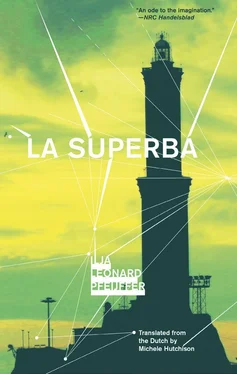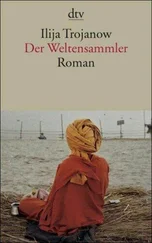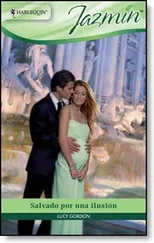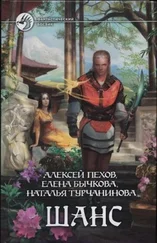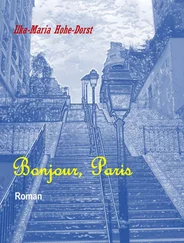He took a sip of his beer. Bare legs walked past. He reached his arm up past his face, made a mouth with his hand in the air and sang, “ O mami sera boutuo mbele, o mami casse boutou mbele .”
“What does that mean, Djiby?”
“It’s from my song, from ‘ Fatou yo ,’ the song my mother always sang to me when I was a child. I always sang that song when I was frightened. It’s kept me alive, really. But I don’t know exactly what it means. Something about giraffes. Everyone speaks Wolof in my region. But the song isn’t in Wolof. My mother came from the southeast. It’s probably in her native language, though I don’t know what that was. Balanta maybe. Or maybe Jolaa or Soceh. My mother never taught me her language.” He nodded in the direction the bare legs had gone. “We’re lucky, you and me, that we can live in this country full of giraffes.”
“Are there giraffes in Senegal?”
“And in your home country?”
“Sorry, Djiby.”
“Do you have beautiful women in your homeland, too?”
“I’ve already said sorry, Djiby.”
“In the light of the rising sun we saw that we had truly left Africa behind. The continent was no longer visible. Can you imagine the feeling, Ilja? Europe was not yet in sight, but we were almost there. We thought we could see the golden glow of its streets.
“And then it began to get hot. I had Julia on my lap. The men took turns to bail out with the cut-up plastic bottles. The sun glowed. There was no shadow in our boat. It was forty degrees around midday. We didn’t have any water left, but that didn’t matter, we were almost there. In half an hour we’d see Europe. Perhaps even sooner. We were in high spirits.
“And then the engine cut out. We were out of fuel. That was all the Libyans had given us. We stopped moving. There we were, floating on the open sea, fifty-one of us in an orange inflatable dinghy. A few men began to paddle with their hands, but soon realized it was pointless. There was nothing else to do but wait and see if anyone rescued us.”
“And how long did that take?”
“What do you mean?”
“You’re sitting here with me, so you must have been rescued. How long did it take?”
“Twelve days.”
12.
“Twelve days?”
“Twelve days.”
“But no one can survive that long.”
“We survived, all of us, even little Julia. It was a miracle. Twelve burning hot days and twelve bitterly cold nights without food or water with fifty-one people in a boat seven meters long at the most. It was hell, but I don’t need to tell you that. We kept ourselves alive by drinking our own piss from the cups we’d made from the plastic bottles, the ones for bailing. Fights regularly broke out when someone tried to steal someone else’s cup of piss. In the meantime, I tried to look after Julia. I gave her my piss to drink. Right from my dick, so that no one could steal it. It might have looked a bit weird to anyone not involved, but I didn’t care.” He laughed. “I’m so proud that Julia survived.”
“And then they took you to Lampedusa?”
“If only. From time to time, a ship would pass in the distance. At the risk of falling overboard, the men stood up and screamed while waving their arms frantically. But they didn’t see us. Or they didn’t want to see us. Finally we were rescued by a Spanish fishing boat. The Francisco Catalina , I still remember it well. They’d set off twenty days earlier from Alicante to fish for crab and shrimp in the international waters between Libya and Sicily. The captain told me that. He was called José Durante Lopez. I talked to him a lot because I was the only person in our group who could speak a bit of Spanish. He told me we were one hundred and thirteen nautical miles from the coast of Libya and that Lampedusa was just as far again. The Libyans had given us exactly enough gasoline for half the journey. Typical Libyan humor, let’s say.”
He took a sip of his beer and looked at me with a broad smile.
“We were lucky, Ilja. Captain José was a brave man, do you realize that? Other captains have gotten into big trouble helping poor wretches like us. To start with, it’s quite a big deal to take fifty-one starving and dehydrated people onboard your own ship. You’d have to really want to, let’s say. And that while you set off from your home port with totally different plans, like catching shrimp and crab for example, you have to keep the wolf from the door, you have a wife and children to keep, and the same goes for the twelve-man crew. Reeling in black men isn’t very profitable. On the contrary, it only costs you, because you have to give them food and drink and you lose valuable time. I’m only too aware of all this.
“And then there’s a much bigger problem than that. Do you know what they did two years previously with the captain of the Cap Anamur when he rescued thirty-seven outcasts from the open sea and took them to Lampedusa? Don’t laugh. They arrested him on the charge of assisting illegal immigration. Captain José wasn’t the one to tell me that. I heard it later, when I was already here. But then I suddenly realized why so many boats had gone past preferring not to notice. And that’s exactly why Captain José is a brave man.”
13.
“As soon as we were all onboard the ship and had been provided with food and water, he broadcast a call on the international distress frequency, channel sixteen, asking what he should do. The Italian authorities replied that he should take us to Malta. But as soon as we entered Maltese waters, we were stopped by their coast guard. They told Captain José to go away. They said he’d picked us up in international waters and therefore there was no legal reason for Malta to accept us. He got into contact with the Italian coast guard to ask whether he could take us to Lampedusa, but they used the exact same argument.
“The deadlock lasted seven days. We could see the coast of Malta in the distance. Europe was there. The Promised Land was there. But we weren’t welcome. In the meantime, the situation onboard became more acute. The Francisco Catalina was a ship of twenty-five meters, significantly more comfortable than our seven-meter orange dinghy, but built for twelve Spanish crewmembers and a captain, not for thirteen Spaniards and fifty-one Africans. There was little space on deck because there were nassa everywhere — the cages they use to catch shrimp and crabs. The happiest of all of us was Julia. She and her mother were allowed to sleep in one of the three cabins for the crew. She’d just turned twenty, Julia’s mother. The rest of us just had to make do in the open air. During the day we had shade, and at night, blankets; we had food and drink, so all in all we couldn’t complain. But some did anyway. We were tired. Arguments broke out. The Egyptian threatened to jump overboard at one point. Then Captain José decided it was no longer possible to go on like that and something had to give.
“A compromise was reached with the authorities in La Valletta. The two pregnant women, Julia, and her mother, were allowed off the boat. The coast guard sent a boat to pick them up and take them to Malta. The rest of us would be taken somewhere else by Captain José.”
“To Lampedusa?”
“Captain José confided in me. He said there was nothing else for it. And he said not to tell the others otherwise a mutiny would break out. I understood. ‘ Fatou yo ,’ I sang. ‘ Fatou yo .’
“After a day and a half’s sailing, we reached the coast. Everyone was over the moon. We were being dropped off in Europe. Captain José dropped the anchor close to the shore. Everyone jumped overboard and ran onto the beach cheering. I walked along behind them, singing softly. Captain José waved to me apologetically and sailed away.”
Читать дальше
